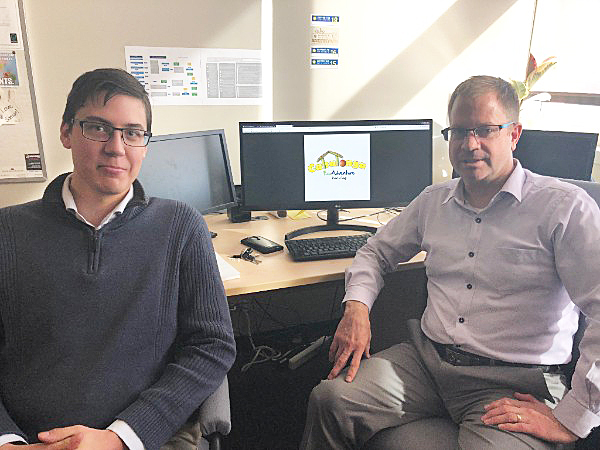What started out as an unexpected visit to an eco-friendly, beachfront hostel business in Puerto Cayo, Ecuador has turned into a business teaching case and award finalist for Dr. Nathan Lupton, an associate professor of International Management in the Dhillon School of Business.

In 2016, Lupton was in Ecuador working on research with faculty at Universidad Espiritu Santo when he had the chance to visit Cabalonga EcoAdventure (Cabalonga), a hostel that offers tent and cabin accommodations, dining and adventure tours. Owned by Diego Losanda-Vasquez and Maria-Elena Alvarado-Villon, Cabalonga’s business model has been recognized by Ecuador’s minister of tourism. Lupton discovered that Cabalonga did little better than break even financially every year. Furthermore, the owners were both working other full-time jobs and in desperate need of some time off themselves. After befriending Losanda-Vasquez and Alvarado-Villon, Lupton decided he would form a business case study from some of the issues that Cabalonga faced.
In November of 2017, Lupton returned to Cabalonga, along with Dhillon School of Business students who combined their studies with the immersive experience of exploring the culture and communities surrounding the hostel. The experience allowed Lupton to assess the revenue streams and options for growth and consider emerging trends in the tourism industry. Lupton then created recommendations to achieve stable revenue growth, increase bookings and resource utilization and reduce the owners’ personal time commitment to Cabalonga.
When the team returned to Canada, Lupton hired Matthew Timler, currently an Economics major with a Supply Chain minor, as a teaching assistant. The two worked on turning the Cabalonga recommendations into a teaching case that would allow students in other classrooms to read the story and provide their own assessments. Through the teaching case, students can learn to assess revenue streams and asset utilization, assess options for growth and move a business from start-up to self-sufficient in an environment of greatly constricted resources, as well as demonstrate the fundamentals of positioning a start-up to capitalize on emerging trends in the tourism industry.
In 2018, Lupton noticed a call for teaching cases through the Decision Sciences Institute, a scholarly international association known for operational information systems and scientific management. On a whim, he decided to enter the Best Teaching Cases Award competition. Their case — Cabalonga EcoAdventure Ecuador: Seeking Sustainability and Self-sufficiency — received the highest score in the preliminary evaluation.
Lupton and Timler will be competing with two other finalists from around the world on Nov. 18 for the final competition at the Decision Science Institute in Chicago. Meanwhile, Losanda-Vasquez and Alvarado-Villon are currently implementing the recommendations at Cabalonga.
